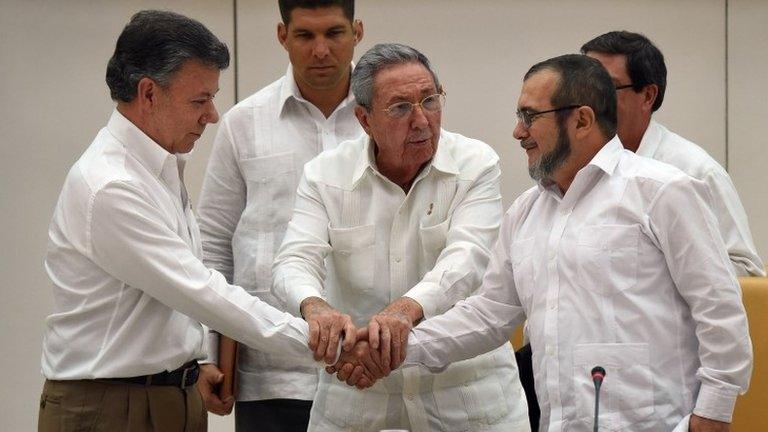Colombia's Santos 'in serious difficulty' if Farc deal fails
- Published
The Colombian president has said he is "convinced" that Colombians will support a peace agreement being negotiated with Farc
Colombian President Juan Manuel Santos has said he will face major political problems if the Colombian people reject a peace agreement being negotiated with the Farc rebel group.
"I will be in serious difficulty," he told the BBC's HARDtalk programme.
"But I am absolutely convinced that the overwhelming majority of the Colombians will support me," he added.
Government negotiators have been engaged in talks with the left-wing rebels in Cuba since November 2012.
It is expected that a peace accord will be signed in March 2016, putting an end to more than five decades of conflict.
Mr Santos has made it clear that the agreement will only be implemented if it is approved by the Colombian people.
"If we sign the final agreement around March, let's say, then the plebiscite will be done a couple of months afterwards," he told the BBC's Stephen Sackur.
Mr Santos insisted that if the agreement was to be rejected by Colombians, the deal with the Farc would be off despite more than three years of negotiations.
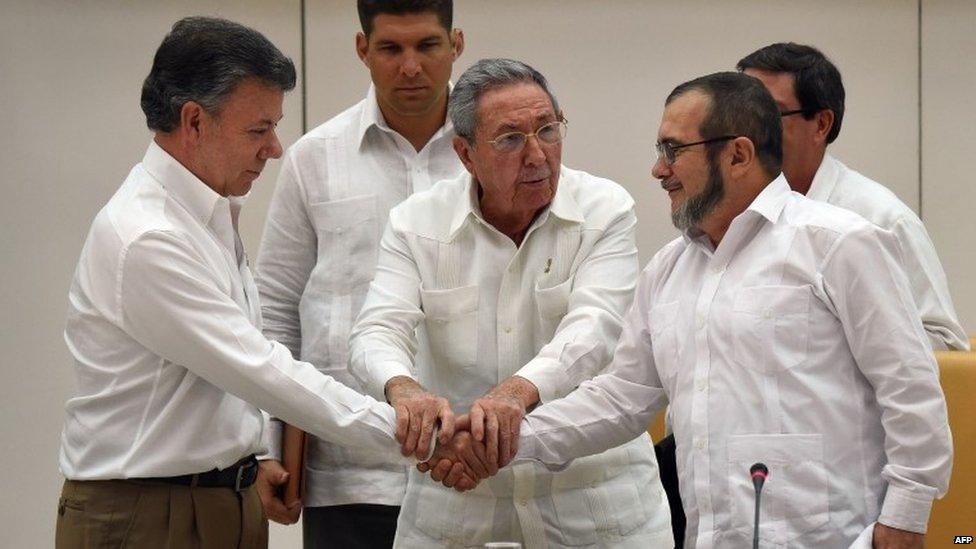
Mr Santos (left) and Farc leader Timochenko shook hands after a meeting facilitated by Cuban President Raul Castro (centre)
The Farc has criticised the idea of a referendum, saying it was never meant to be part of the process.
'No more extraditions'
There has been agreement on four broad points on the agenda: the political participation of the rebels, land rights, drug trafficking, and most recently, transitional justice.
Transitional justice - how rebels who have committed crimes will be punished - had been considered one of the thorniest issues on the agenda.
When the two sides announced a deal on the issue on 23 September, President Santos flew to Cuba.
The president shook hands for the first time with the Farc leader, Rodrigo Londono Echeverri, known as Timochenko.
He also set a deadline of six months for the signing of a final peace agreement.
In the BBC interview, Mr Santos said that Timochenko and other rebel leaders would be welcomed in Colombian politics after the implementation of the accord.
"The whole idea of a peace process is to have the people who are in arms to give up their arms and continue doing their politics through legal means," he said.
When the deal is finalised, Colombia will reject any request from the United States to extradite Timochenko and some 70 other Farc members sought for drug trafficking and other offences, Mr Santos added.

Colombia's armed conflict
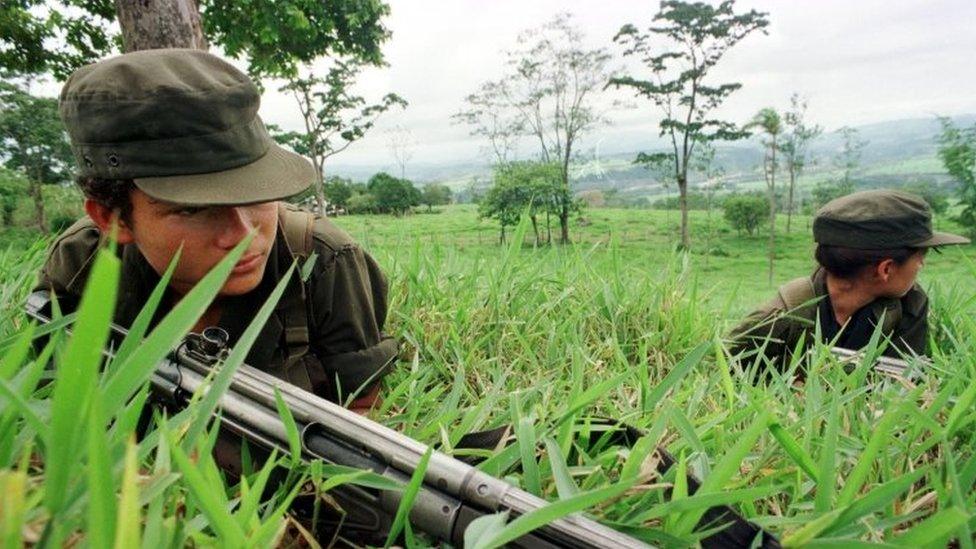
Farc rebels have been fighting the government since 1964
•An estimated 220,000 killed
•More than five million internally displaced
•More than seven million registered victims
•About 8,000 Farc rebels continue fighting
Sources: Unit for Attention and Reparation of Victims, Colombian government

The interview will be broadcast at 04:30 GMT, Thursday, 19 November and repeated at 09:30 GMT, 16:30 GMT and 20:30 GMT. It will be repeated on Friday, 20 November, at 04:30 GMT and 09:30 GMT.
Clarification: The headline and wording of this article have been amended to make clear that President Santos said he would face major political problems if the peace deal was rejected.
- Published11 November 2015
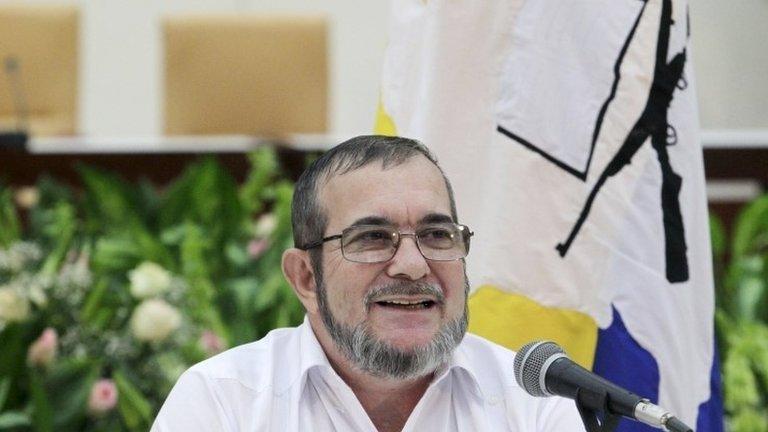
- Published18 October 2015
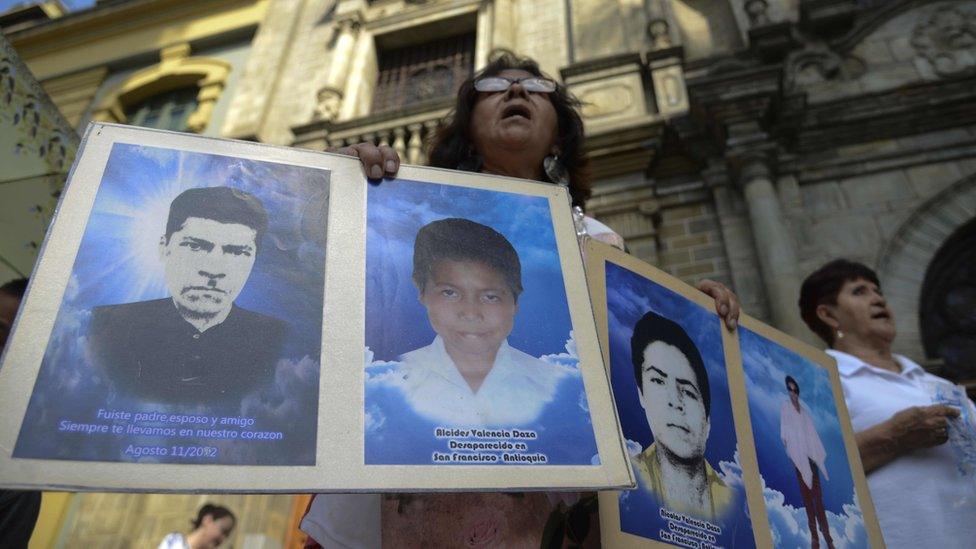
- Published24 September 2015
